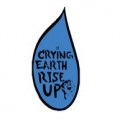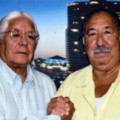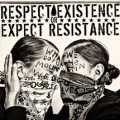FOUR YEARS AFTER FUKUSHIMA and INDIAN POINT
 The Manhattan Project, Shut Down Indian Point Now! & NYC Safe Energy Coalition invite you to
The Manhattan Project, Shut Down Indian Point Now! & NYC Safe Energy Coalition invite you to
.
FOUR YEARS AFTER FUKUSHIMA and INDIAN POINT
Tue. March 10, 2015
6:30 PM to 9:00 PM
Goddard-Riverside Community House
593 Columbus Avenue, NYC
(NE corner of 88th St & Columbus Av)
Subway: B/C to 86th st & 1 to 86th st
Click here to download flyer
.
RSVP: aslater●rcn.com (please change ● to @)
.
Experts and activists make the connection between what happens during uranium mining, the great damage it does to people and the land, for the fuel to power Indian Point and Fukushima.
.
Hear an update about the ongoing and catastrophic effects of Fukushima from Prof. Hiroko Goto, Chiba University School of Law; Vice President of Human Rights Now.
.
Jennifer Thurston of Information Network for Responsible Mining will give us on-the-ground report of environmental impacts of uranium mining in Colorado.
.
Meet activist Leona Morgan of the Diné No Nukes. She will talk about her people and their fight against uranium mining on indigenous lands in the Southwest US.
.
Klee Benally, a Diné based in Arizona, will address resource colonization in uranium mining, protection of sacred places, and tactics towards collective liberation.
.
Learn from Marilyn Elie with the Indian Point Safe Energy Coalition about the dangers of Indian Point only 25 miles from NYC and why we must shut it down.
.
——————————————-
Speakers:
Professor Hiroko Goto, Professor of Chiba University School of Law in Japan; Vice President of Human Rights Now; Board member of Japan Association of Gender and Law; Board member of Japanese Association of Victimology; Member of Science Council of Japan; and as a former expert member on violence against women for the Gender Equality Bureau was involved in the Basic Plan for Gender Equality in Japan. After receiving her LL.B. and LL.M. degrees from Keio University in Tokyo, where she also completed her Ph.D. studies in criminal law, Professor Goto became a leading expert on Japanese juvenile law and gender law. She has published many works in both English and Japanese on these topics. She is also the chief of the Human Rights Now’s Earthquake Relief Project whose activities include fact-finding missions, policy proposals, lobbying activity, and seminars to raise awareness on the human rights situation in Fukushima and other areas affected by the earthquake, tsunami and nuclear accident in 2011.
.
Leona Morgan is a Diné (Navajo) organizer working with several community organizations based in the Southwest focused on addressing effects from past uranium mining and threats of new uranium operations in New Mexico since 2007. In 2014, she co-founded a network, Diné No Nukes, an initiative to nurture wide-scale awareness of nuclear and uranium development initiatives in the “Four Corners” region by providing multi-media educational materials and industry analyses to the Navajo electorate & elected officials. The goal of Dine No Nukes is to increase public awareness and civic participation to ensure that informed decisions are made on nuclear issues across the Navajo Nation and within the Four Sacred Mountains—for the protection of health, water, land, cultural resources and the sovereignty of the Diné people.
.
Marilyn Elie has been working to close the Indian Point nuclear power plant for the last 20 years. She is a co-founder of Westchester Citizens Awareness Network and one of the original members of the Indian Point Safe Energy Coalition, IPSEC, a coalition of grassroots and environmental organizations in the lower Hudson Valley. She became involved in this issue because of her concern about the unsolvable problem of high level radioactive waste; a toxic legacy that we are passing on to untold generations. Marilyn has also learned to watchdog the Nuclear Regulatory Commission. She regularly attends Nuclear Regulatory Commission meetings and has seen three regional directors come and go. She has learned how to read NRC reports for what is hidden between the lines and, on occasion, is the only person in the room who can attest to changes in the regulatory position because she was there at the original meeting. She firmly believes that the next year is critical in determining if the reactors at Indian Point will be relicensed to operate for another 20 years or if they will be denied a new operating license.




